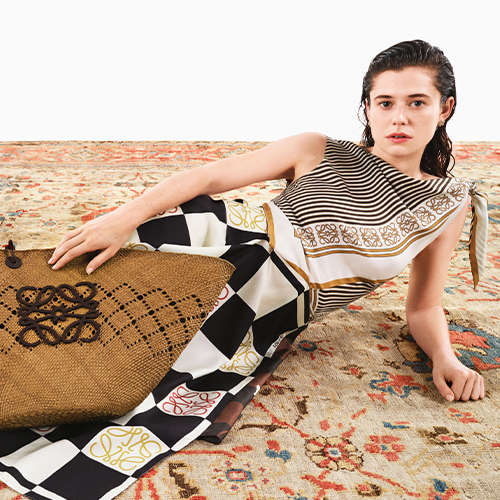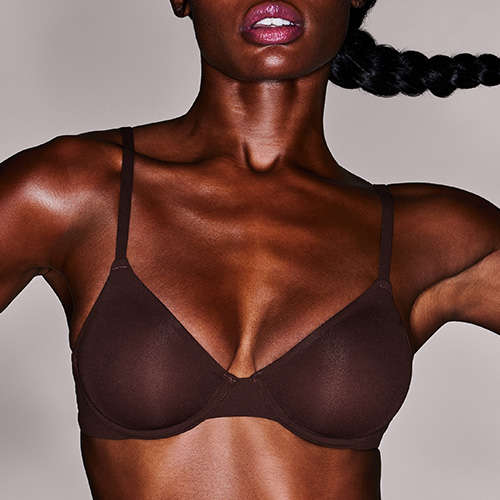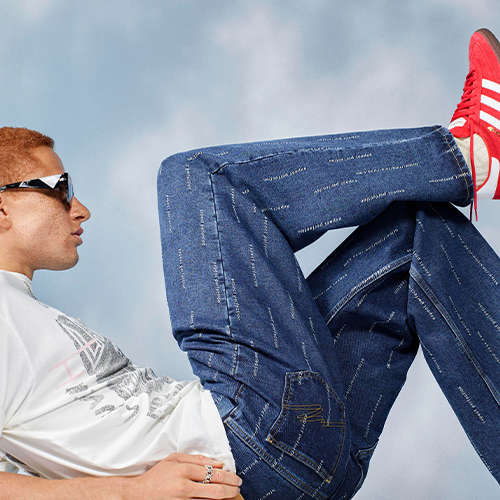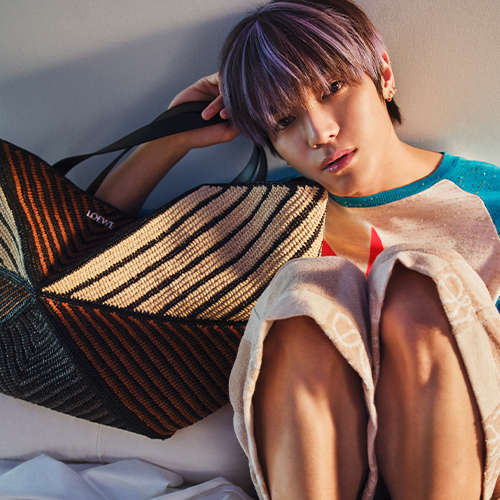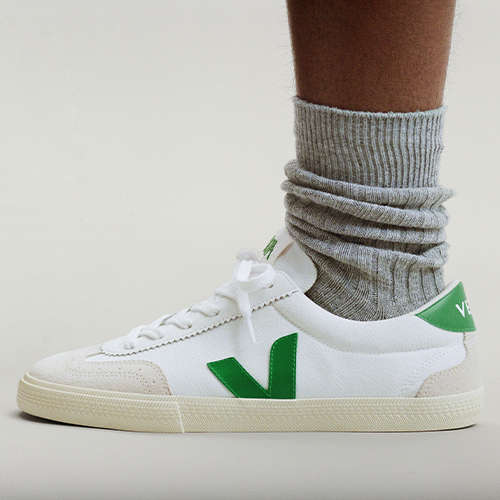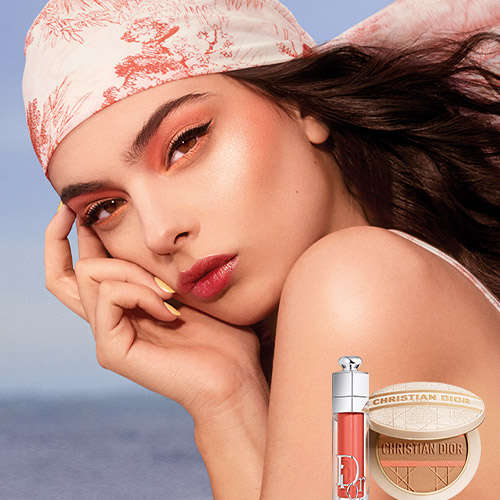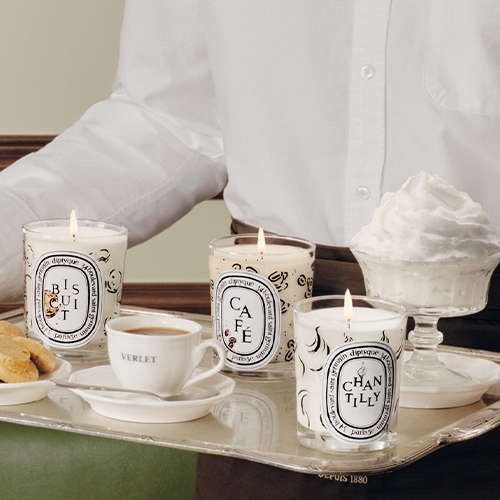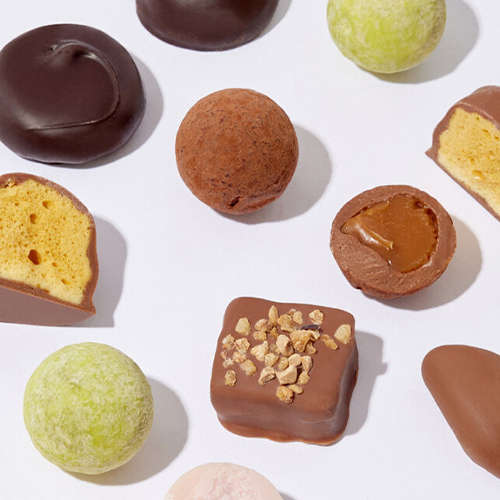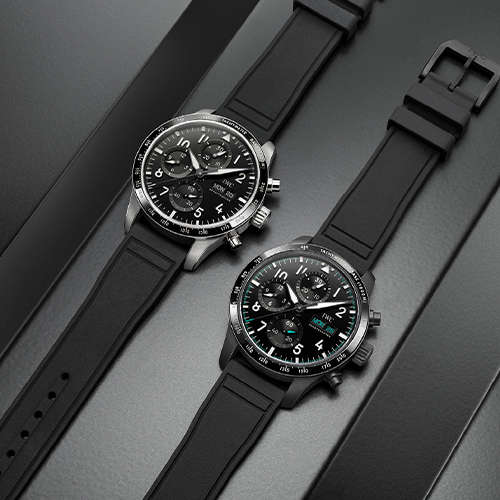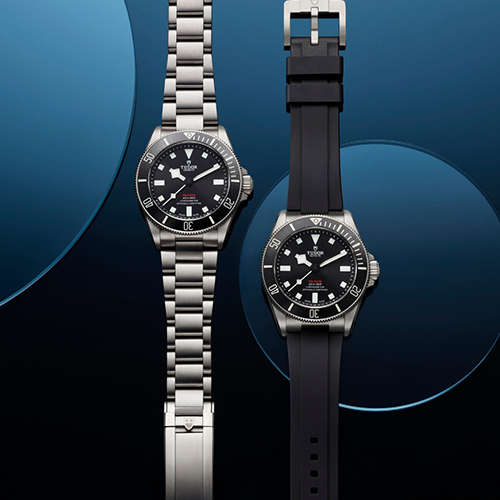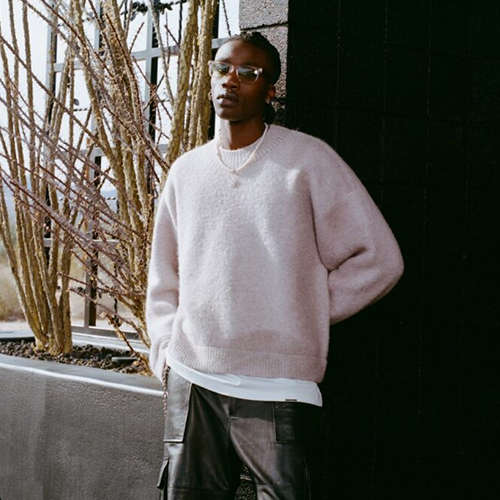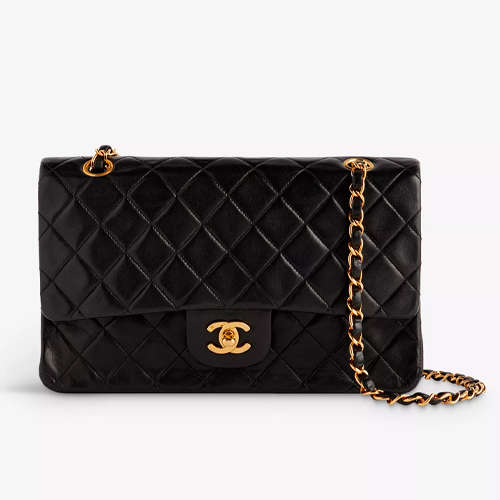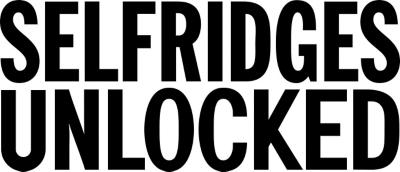- Australia / AUD $
- Canada / CAD $
- China / CNY ¥
- France / EUR €
- Germany / EUR €
- Hong Kong SAR China / HKD $
- Ireland / EUR €
- Italy / EUR €
- Japan / YEN ¥
- Kuwait / USD $
- Macao SAR China / HKD $
- Netherlands / EUR €
- Qatar / USD $
- Saudi Arabia / USD $
- Singapore / SGD $
- South Korea / KRW ₩
- Spain / EUR €
- Taiwan / TWD $
- United Arab Emirates / USD $
- United Kingdom / GBP £
- United States / USD $
- Not yours? Read more
Tell us what you think
Shop in your local currency and language
You are currently in Qatar QA / USD $ store
- English
- English
- English
- English
- English
- English
- English
- English
- English
- English
- English
- English
- English
- English
- English
- English
- English
- English
- English
- English
- English
Did you know that we deliver to 130 countries or regions and offer a range of delivery options to suit you wherever you are in the world? Find out more
Sign up once to our Selfridges+ service and you can enjoy unlimited deliveries wherever you are in the world. FIND OUT MORE
International delivery
With almost everything on selfridges.com available for International Delivery, you can send your order to 130 countries or regions around the world, including North America, Australia, the Middle East and China.
Although we only offer 20 currencies to browse in online, you can still deliver to all of the following countries or regions:
- Algeria
- Andorra
- Antigua and Barbuda
- Aruba
- Australia
- Austria
- Azerbaijan
- Bahrain
- Bangladesh
- Barbados
- Belarus
- Belgium
- Belize
- Bermuda
- Bolivia
- Botswana
- Brunei
- Bulgaria
- Cambodia
- Canada
- Cayman Islands
- Chile
- China
- Colombia
- Costa Rica
- Croatia
- Cyprus
- Czech Republic
- Denmark
- Dominica
- Dominican Republic
- Ecuador
- Egypt
- El Salvador
- Estonia
- Finland
- France
- French Guiana
- Germany
- Gibraltar
- Greece
- Grenada
- Guadeloupe
- Guatemala
- Guernsey
- Guyana
- Honduras
- Hong Kong
- Hungary
- Iceland
- India
- Indonesia
- Ireland
- Israel
- Italy
- Jamaica
- Japan
- Jersey
- Jordan
- Kazakhstan
- Kenya
- Kuwait
- Laos
- Latvia
- Lebanon
- Lesotho
- Liechtenstein
- Lithuania
- Luxembourg
- Macau
- Malaysia
- Maldives
- Malta
- Martinique
- Mayotte
- Mexico
- Monaco
- Montserrat
- Morocco
- Myanmar
- Namibia
- Netherlands
- New Zealand
- Nicaragua
- Nigeria
- Norway
- Oman
- Pakistan
- Panama
- Paraguay
- Peru
- Philippines
- Poland
- Portugal
- Puerto Rico
- Qatar
- Reunion
- Romania
- Rwanda
- Saint Kitts and Nevis
- Saint Lucia
- Saint Martin (French part)
- San Marino
- Saudi Arabia
- Serbia
- Singapore
- Slovakia
- Slovenia
- South Africa
- South Korea
- Spain
- Sri Lanka
- Suriname
- Swaziland
- Sweden
- Switzerland
- Taiwan
- Tanzania
- Thailand
- Trinidad and Tobago
- Turkey
- Uganda
- Ukraine
- United Arab Emirates
- United Kingdom
- United States
- Uruguay
- Venezuela
- Vietnam
Meet the collectives championing female voices
As we celebrate International Women’s Day 2020 and champion positive ideas for the future, we spoke to leading female and non-binary cultural collectives about their experiences, work, inspirations and hopes for the future.
Let's meet them...
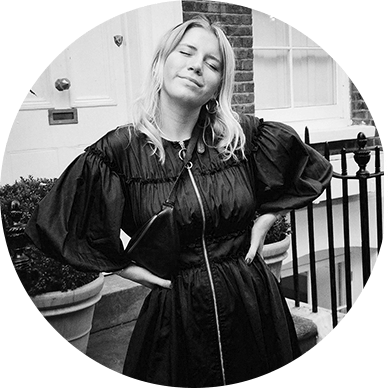
The publishing collective
with Camilla Ackley, Founding Editor of Into the Fold
Camilla first started Into the Fold as a blog in 2009, before turning it into a female-led online magazine in 2015. It showcases a blend of opinion pieces, humorous titbits and style guides (and more), written by emerging and established female and non-binary contributors.
What prompted you to start Into the Fold?
I was tired of the way mainstream women’s publications were telling women who they should be rather than celebrating all the things they are. I wanted to create a space that made women and non-binary people feel better about themselves; somewhere safe and honest and entertaining.
What tend to be the most popular subjects on Into the Fold?
We cover a lot of mental health and women’s health issues; whether it’s actual content or scientific studies, women are chronically underrepresented. I think our audience feels seen when they can relate to something that is not typically spoken about – from how women show symptoms of ADHD differently, to the reality behind donating your eggs.
Why has there been a rise in the number of female-only platforms?
The dream is diverse workplaces that function well and without any members of a team feeling threatened or uncomfortable. Sadly, a lot of corporate environments still don’t feel that way for women (and others). Women should feel empowered enough to lead their own businesses while feeling comfortable enough to navigate traditional workspaces.
I was tired of the way mainstream women’s publications were telling women who they should be rather than celebrating all the things they are.
– Camilla Ackley
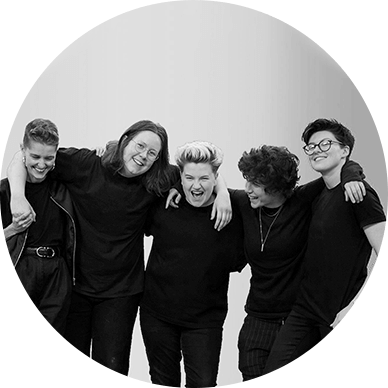
The comedy collectives
with Chloe Green, Co-Founder of The Lol Word (pictured above), and Hannah Layton, Co-Founder of Hysterical Women
The Lol Word is a platform for the best women and non-binary LGBTQIA+ comedy talent, run by founding five members. Hysterical Women champions female comedy writers/performers, with a monthly night ‘For Comedians who Happen to be Women’.
Have you experienced any misogyny in the comedy circuit?
Chloe: I don’t think the comedy circuit is explicitly misogynistic. The thing to look out for is the subtler misogyny, like booking a line-up of all straight white men. People will argue it’s a meritocracy and they should book acts that are ‘best for the job’, but there are enough acts that aren’t straight white men, that would make that line-up much more interesting.
Hannah: Everyone has met that person that says, ‘Women comedians aren’t funny’. When we meet them, we invite them to Hysterical Women. Our audience is 50/50 – it is definitely not ‘anti-men’. Sure, the themes are sometimes more geared towards the female experience but that’s because in comedy you talk about what you know. Cat calling, periods, gender equality, vaginas and the like all feature – but no more so than anything else.
What are the benefits of working with women and non-binary people?
Chloe: It sounds corny and cliché, but we’re all very supportive and kind to each other. Decisions are made collectively, and we give each other the space to share difficulties, hang-ups and anxieties. Comedy can be so competitive, but our individual victories are shared and we’re proud of each other.
Hannah: The atmosphere at our live nights is always electric, warm and welcoming. We are keen to reinforce that women aren’t a genre – but simply by having an all-female line-up seems to relax our audience, and our acts.
What do you think the 2020s hold for women/non-binary people in comedy?
Chloe: Just look at the people on the rise in the comedy world: Sophie Duker, Catherine Bohart, Suzi Ruffell, Sarah Keyworth, Olga Koch, Siân Davies, Kemah Bob, Charlie George… Queer women and non-binary comedians are crushing it and that is just going to become more and more normal – finally!
Hannah: ITV also pioneered the 50:50 initiative last year, designed to get more women into writers’ rooms, while more and more production companies are looking for new voices. Several of our alumni have played Live at the Apollo and been nominated/won Edinburgh Awards. This number is only going to grow!
Hysterical Women will be on at The Underbelly Festival on The Southbank on 30 April.
Everyone has met that person that says, ‘Women comedians aren’t funny’.
When we meet them, we invite them to Hysterical Women.
– Hannah Layton
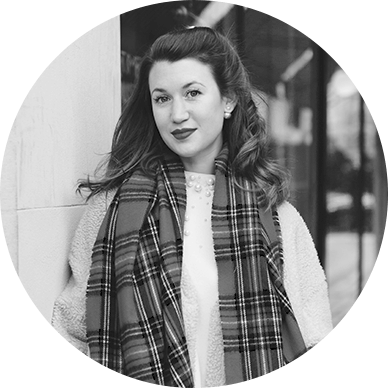
The arts collective
with Joanna Payne, Founder & Director of Marguerite
Marguerite is a 300-strong professional network for women who work in the arts, with the aim of democratising the art world and promoting the advancement of women in the industry.
Why has the number of female-only clubs grown so much?
When I launched Marguerite in 2015, the art world was rife with inequality. Huge moments like #MeToo, Time’s Up and the Women's March movements demonstrated the scale of the problem across industries. Lots of female-only businesses have sprung up to continue the mission of these movements – to empower women through empathy and strength in numbers.
How do the 2020s look for women and non-binary people in the art world?
Things have improved over the past five years – now, four out of the five directors of Tate galleries are women (in 2015 they were all men). You can’t be what you can’t see, so these improvements will encourage young girls. Having women in power also means they can improve things for all women. For example, the Director of Tate Modern, Frances Morris, put the championing of female artists at the heart of her plans when she took over in 2017.
Four out of the five directors of Tate galleries are now women. You can’t be what you can’t see, so these improvements will really encourage young girls.
– Joanna Payne
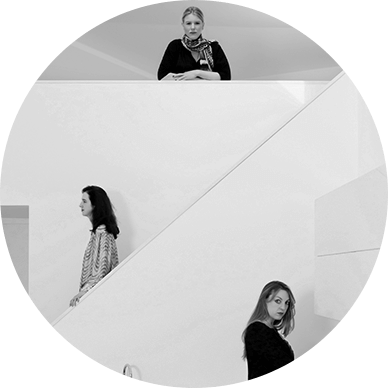
The architecture collective
Catherine Pease, Co-Director of vPPR Architects
Set up in 2009 by Tatiana von Preussen, Catherine Pease and Jessica Reynolds, vPPR Architects is an award-winning 10-women practice, known for its bold designs that focus on community and sustainability.
What do you enjoy about working in an all-female environment?
We never consciously made the decision to create a female-only architect firm, but we were great friends and valued each other’s design approach. Our ethos is that of collaboration; we support one another not only in the design process but also in daily life. We can work on our own terms and set our own rules – which is great when it comes to juggling work and family life.
If you were to have dinner with three renowned women, who would they be?
Charlotte Perriand – if she could be brought back to life, I would love to discuss how better design can help create a better society. Tilda Swinton – she’s never one to shy away from the experimental. Maria Balshaw – the current, and first female, Tate director. She is an inspiration.
vPPR recently designed the exhibition for ‘Masculinities’ at the Barbican, on from 20 February to 17 May.
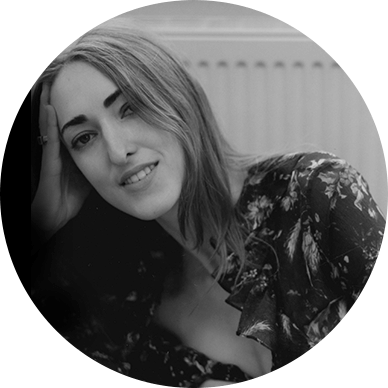
The fashion collective
with Daisy Walker, Founder of Women in Fashion
Founded in 2015, Women in Fashion started as a feminist non-profit organisation providing women and men in the fashion industry with a platform to discuss issues. It now has a monthly radio show on Foundation FM and hosts panel talks, mentoring events and exhibitions.
What prompted you to start Women in Fashion (WIF)?
I wanted to create a space that recognised the disparity and gender bias against women, while also involving men in that conversation. The point of WIF is to discuss issues (such as diversity, representation of gender, age discrimination and sexism), then to leave with what you’ve learnt and to carry that into your own pocket of the industry.
What do you hope to see in the workplaces of the future?
I think it’s really important that we’re aiming towards an even split between the sexes in workplaces, especially in top-tier roles. A work environment that is evenly split is also a balanced environment and a much nicer one to work in.

